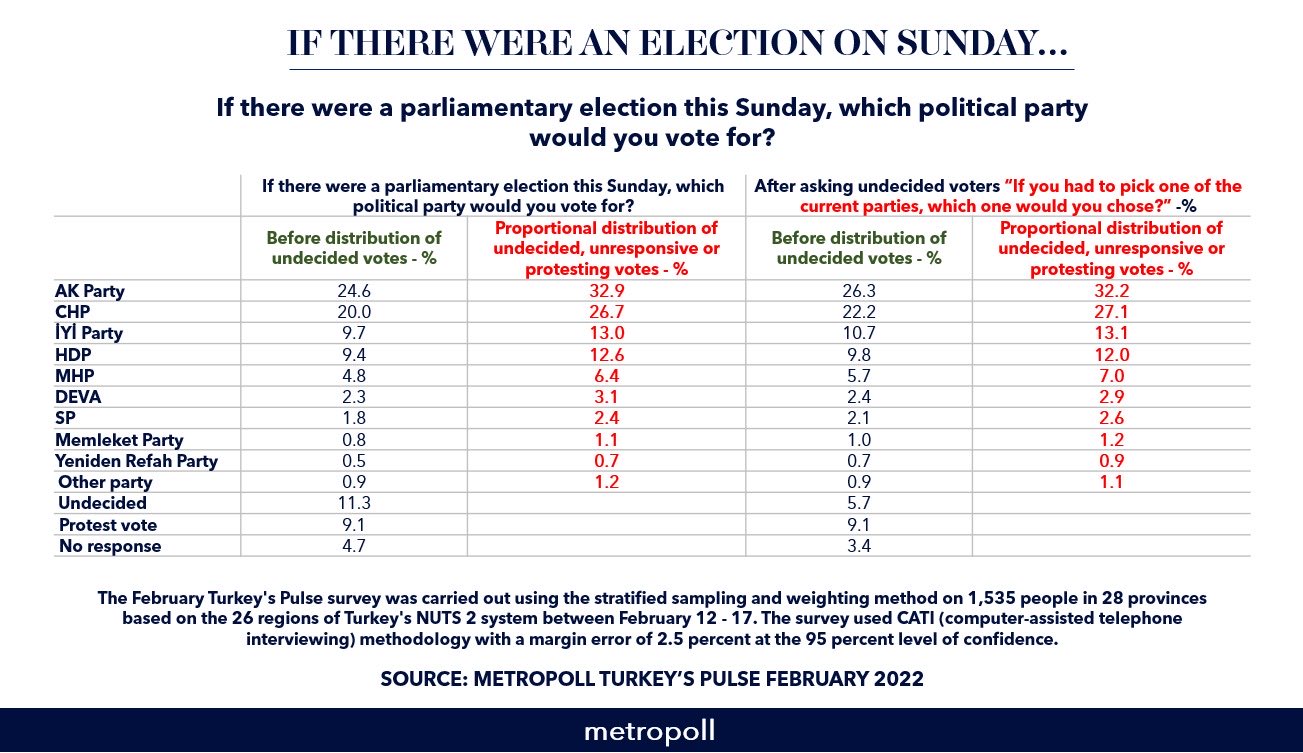The combined voting rate of four opposition parties exceeds 45 percent, about five points higher than the ruling alliance, according to MetroPoll.
Two leading opposition parties have increased their lead over the ruling alliance, according to a new survey by the MetroPoll company.
The company released two different results, one with distributing the undecided and blank votes to the parties proportionally and one by asking those voters for whom they would vote if they had to pick one party.
While the ranking is the same according to both results, President Recep Tayyip Erdoğan’s Justice and Development Party (AKP) gets slightly more votes when the undecided voters are asked to pick one party.
The AKP is followed by the Republican People’s Party (CHP) and the İYİ (Good) Party, which make up the Nation’s Alliance.
The Nation’s Alliance, which is expected to expand to other parties, including the splinter movements from the AKP, gets 39.7 percent of the votes when the undecided/blank votes are distributed proportionally and 40.2 percent when the undecided voters are asked to pick one party.
Two of the parties listed in the survey results, the Felicity Party (SP), which shares the same Islamic roots with the AKP, and the Democracy and Progress (DEVA) Party, a splinter movement from the AKP, are expected to join the Nation’s Alliance in the next election.
The combined voting rate of these four parties is 45.7 percent, according to the survey.

Six opposition parties, including the CHP, the İYİ Party, the DEVA Party and the SP, yesterday (February 28) issued a memorandum of understanding laying the conditions for the country’s switch to what they call the “enforced parliamentary system.”
The People’s Alliance of the AKP and the Nationalist Movement Party (MHP), on the other hand, gets 39.3 percent of the votes when the undecided/blank votes are distributed proportionally and 39.2 percent when the undecided voters are asked to pick one party.
The results show that neither alliance is able to get 50 percent plus one vote, which is required for the election of the president.
The Kurdish-issue focused Peoples’ Democratic Party (HDP) is the largest party outside of the two alliances, getting 12.6 percent or 12 percent of the votes according to the two different calculations.
The survey was conducted with 1.535 people from 28 provinces with the computer-assisted telephone interview method between February 12-17, said MetroPoll.
Bianet English
